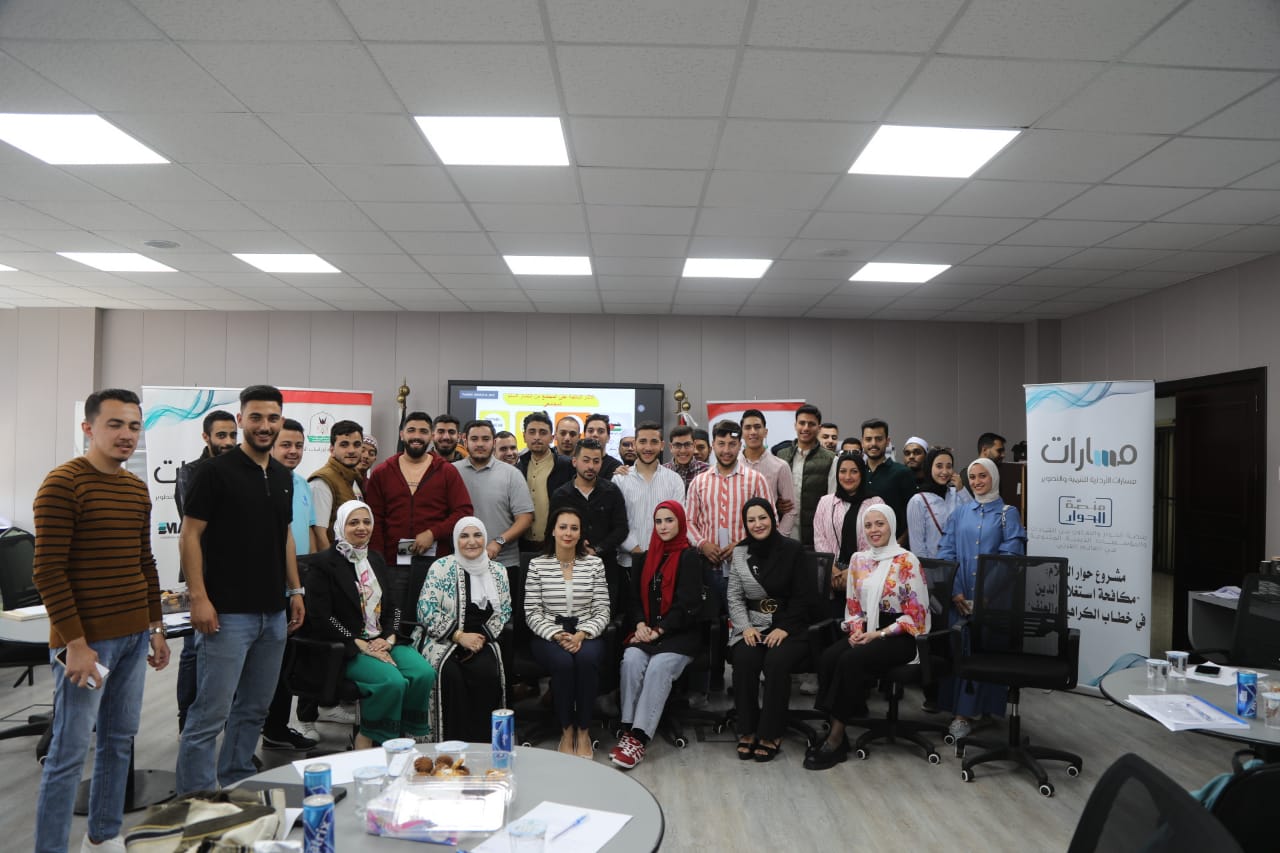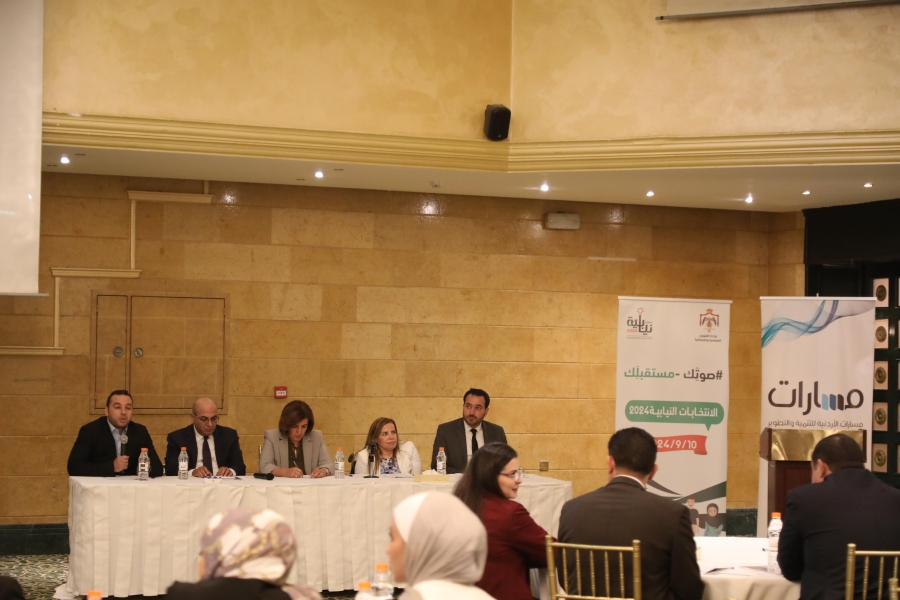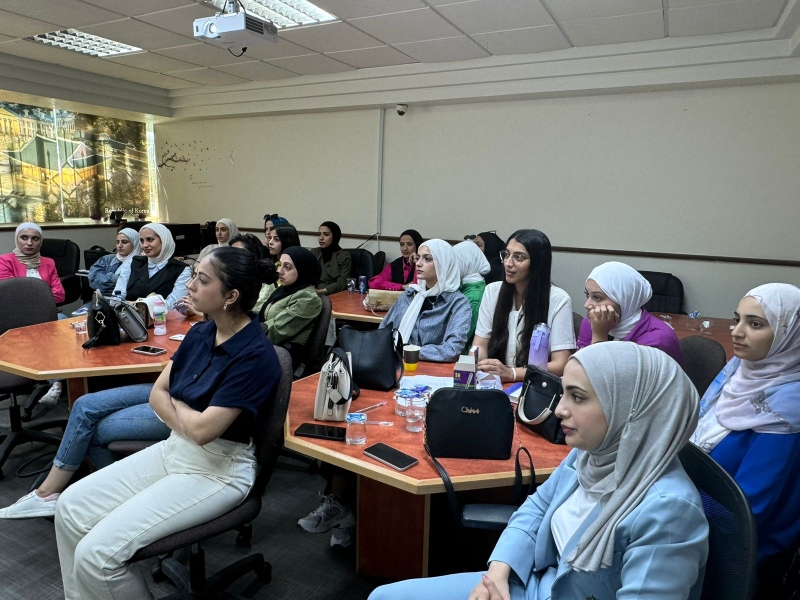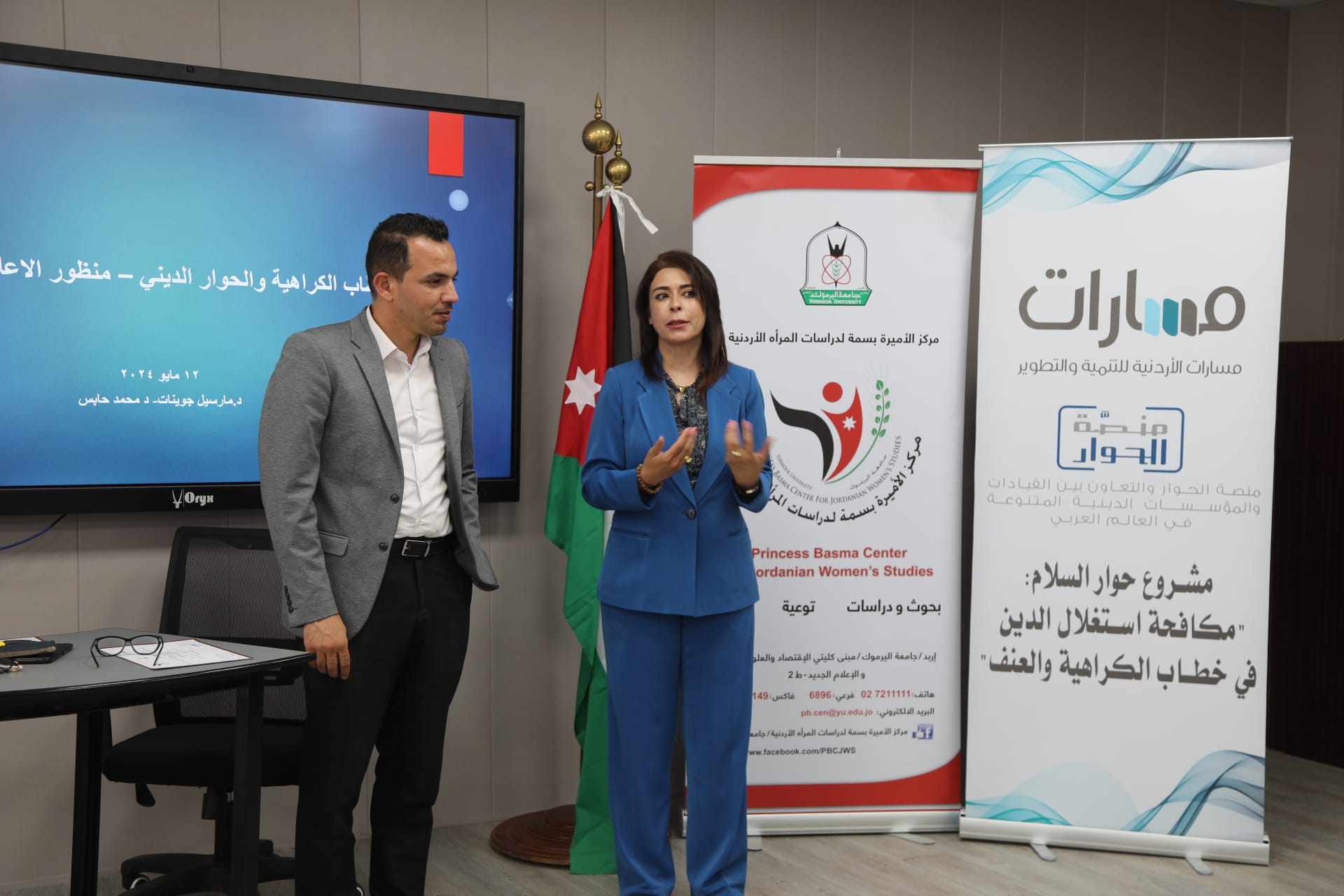Masarat Foundation and Princess Basma Center launch “Hate Speech and Religious Dialogue” sessionsMasarat Foundation and Princess Basma Center launch “Hate Speech and Religious Dialogue” sessions

.
The Princess Basma Center for Jordanian Women's Studies, in collaboration with the Jordanian Masarat Foundation for Development and Progress, has begun implementing the first dialogue session on "Hate Speech and Religious Dialogue." This initiative is part of the "Hate Speech and Interfaith Dialogue" project carried out by Masarat. The session features a group of specialized speakers, including Islamic and Christian clergy, as well as faculty members from the Colleges of Arts, Sharia, Islamic Studies, and Law. The project aligns with the Royal vision of rejecting sectarian, doctrinal, and ideological violence in the region, emphasizing dialogue based on mutual respect and acceptance of others. This reflects Jordan's belief that nations are built on love, peace, and brotherhood.
The first session was led by Dr. Ahlam Matalqa from the Department of Islamic Studies at the College of Sharia and Islamic Studies, focusing on "Peace and Justice." The discussion addressed dialogue and coexistence under the following themes:
-
King Abdullah II's Address: The King's speech at the 52nd Munich Conference emphasized the need to combat extremist ideologies that oppose the principles of Islam, which call for acceptance and coexistence, rejecting violence and radical thought.
-
Islamic Principles in Dealing with Others: Islam's guidance on treating others with kindness, benevolence, and justice, especially with non-Muslims who are peaceful citizens, was discussed. This differs from the treatment of aggressors.
-
The Medina Charter: The session referenced the Prophet Muhammad's (peace be upon him) establishment of principles of citizenship in Medina, guaranteeing rights and duties for all its residents—Muslims, Jews, and polytheists—while promoting equality and justice.
-
The Importance of Dialogue Over Debate: The necessity of balanced openness to others was highlighted, avoiding both excessive openness without principles and closed-mindedness.
-
Role of Societal Institutions: Families, educational institutions, and media were identified as crucial in reinforcing societal harmony and combating the misuse of religion in promoting hate speech and violence.
-
Impacts of Social Peace: The benefits of societal peace, including channeling collective efforts towards creativity, fostering unity, and achieving harmony and peaceful coexistence, were discussed. These outcomes contribute to the welfare of individuals and the nation.



